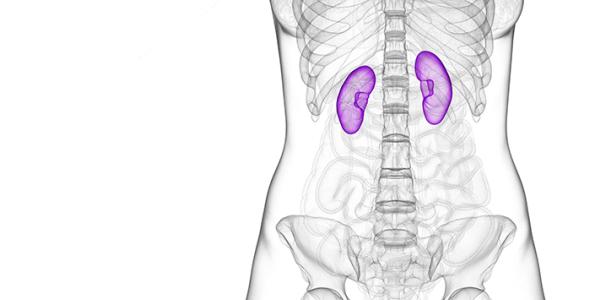


Beyond ridding your body of natural waste products and extra water, your kidneys:
If you drink two cups of coffee every morning, you have a pretty good idea how fast your kidneys can work! The kidneys filter about a half cup of blood every minute. They process an impressive 200 quarts of fluid every 24 hours! Roughly two quarts are excreted, while the remaining 198 quarts are filtered and recycled through the body.
Each of your kidneys is made up of around a million tiny filtering units called nephrons. Blood enters your kidneys through the renal artery. This large blood vessel branches out into increasingly smaller blood vessels until it reaches the nephrons. Each nephron consists of a filtering unit, called a glomerulus, and a tubule. The glomerulus filters the blood, removes waste, and returns the cleansed blood to the tubule. Inside the tubule, chemicals and water are added or removed to balance the filtered fluid based on the body’s needs. The filtered blood returns to the blood stream through a tiny blood vessel that runs alongside the tubule and the fluid and waste matter that remains inside the tubule becomes urine. Urine flows from the kidneys into the bladder through two thin tubes called ureters. Your bladder stores the urine until you pass it out of your body through your urethra. Together, the kidneys, ureter, bladder, and urethra make up the urinary tract.
Some people have only one kidney, whether because they were born that way or as a result of illness or injury. Fortunately, a person can be perfectly healthy with only one kidney – this is why people with two healthy kidneys may be able to donate one to a friend or loved one. However, diseases of the kidneys and urinary tract can be dangerous and even life-threatening.
Any of the conditions listed above can contribute or lead to Chronic Kidney Disease, or CKD, in which the kidneys sustain progressive damage over time. Developing CKD is a slow process that may not have symptoms for a while, but it can lead to heart disease, stroke, and kidney failure. In addition to the ailments listed above, risk factors for developing kidney disease include:
Kidney disease develops gradually, and many people don't have symptoms until the condition is advanced or they develop a complication. Symptoms may include:
If CKD is linked to diabetes and/or high blood pressure, careful control of those conditions through diet, lifestyle, and medication can keep the condition from getting worse. Unfortunately, chronic kidney disease may progress to kidney failure, requiring dialysis or kidney transplantation.
If you are concerned about your family history or symptoms you may be experiencing, make an appointment to talk to your doctor as soon as possible. For help finding a doctor, click here.
This article appeared in the March 2024 edition of the HealthPerks newsletter.

Identify your risk factors and what to do if you are at risk.